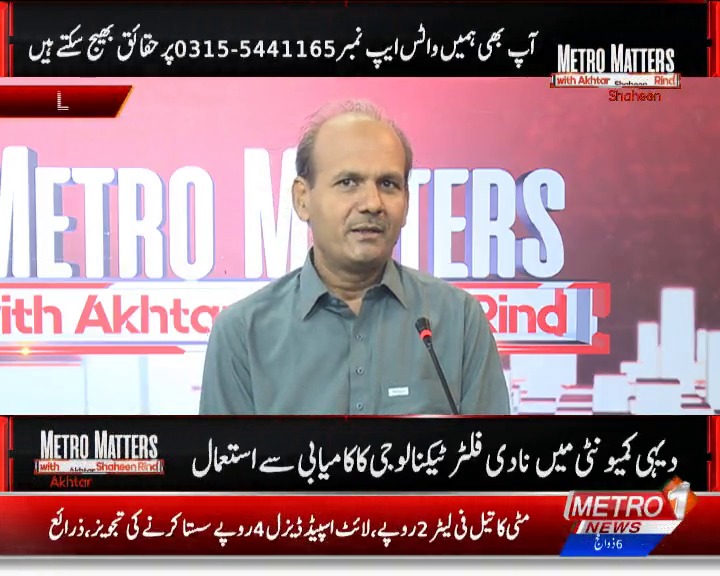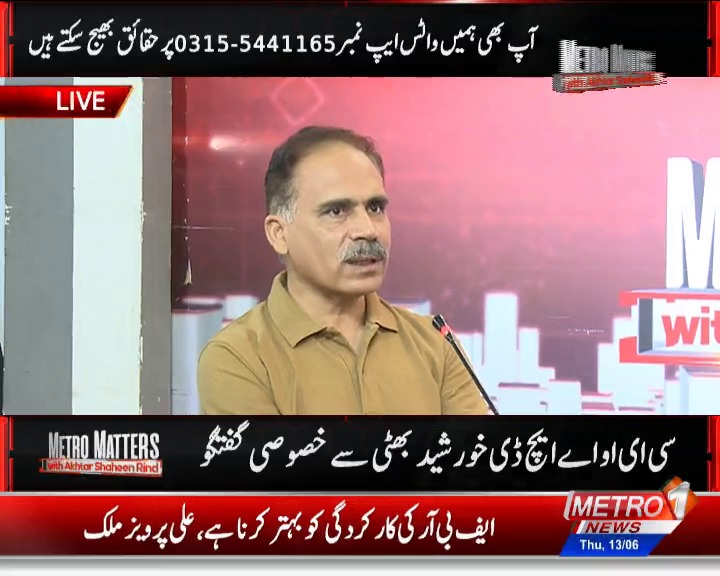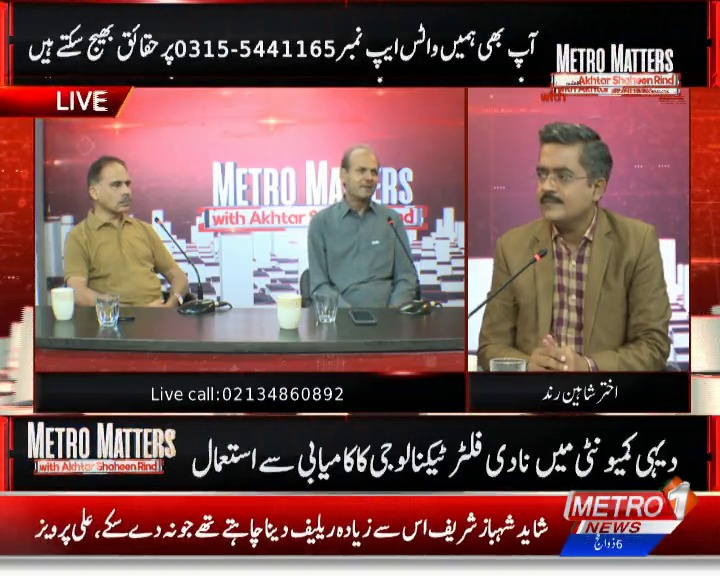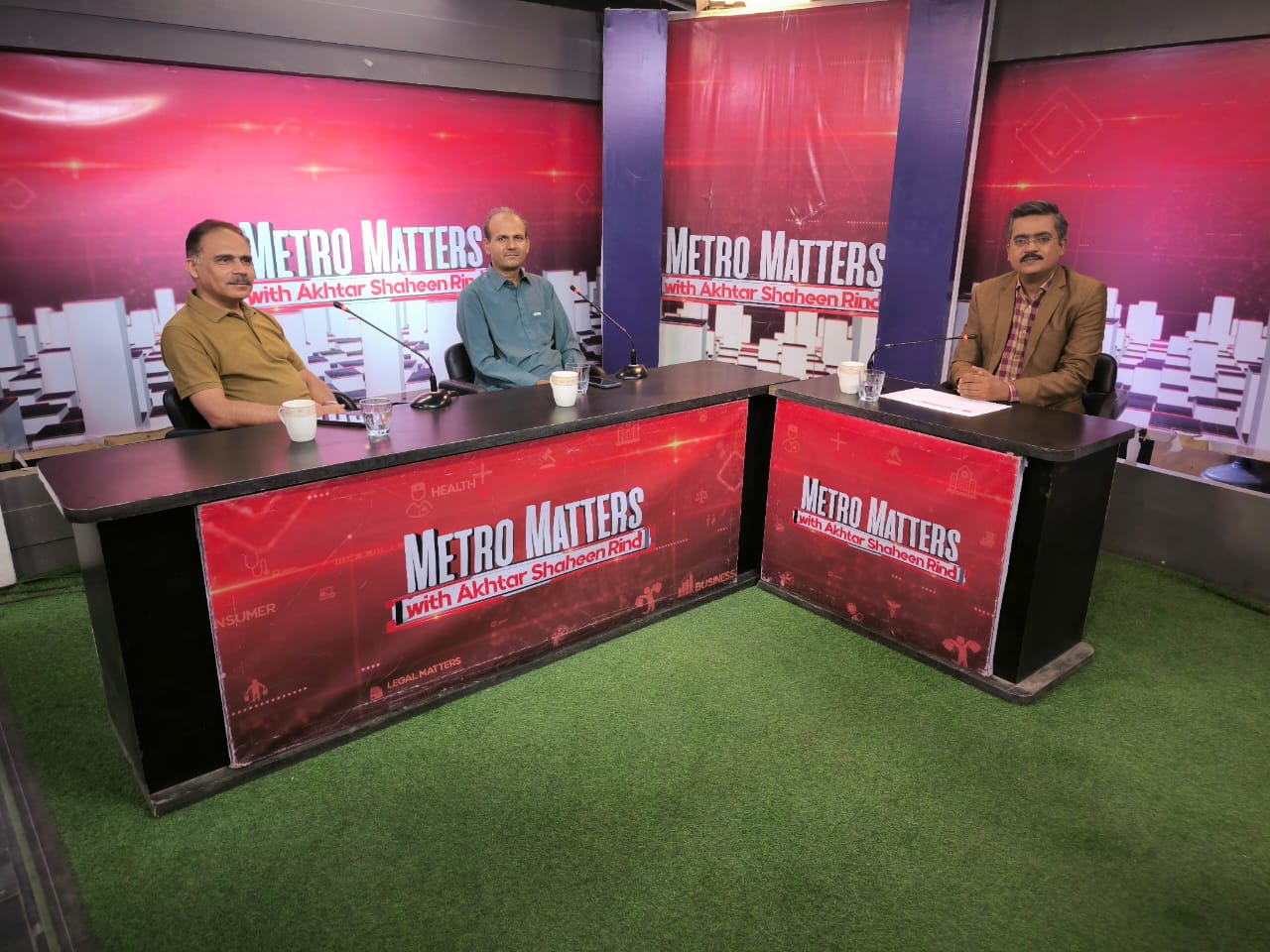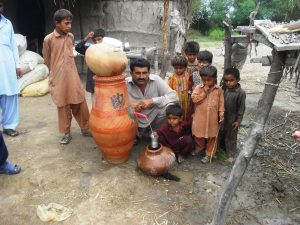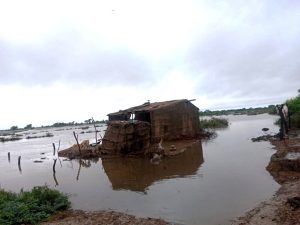Empowering Communities: AHD’s Vision for a Healthier and Sustainable Future on Metro Matters
The AHD team was honored to be featured on the Metro 1 news channel’s show “Metro Matters” with host Akhtar Shaheen Rind. This appearance provided an excellent platform to discuss AHD’s various initiatives, including Nadi filters, fuel-efficient cooking stoves, and kitchen gardening. These programs are designed with the overarching goal of enhancing the health, convenience, and sustainability of both rural and poor communities, as well as urban areas.
During the show, Mr. A. Khurshid Bhatti, the founder and Chief Executive Officer, along with Mr. Habibullah Khaskheli, the Executive Director, provided viewers with a detailed account of AHD’s history. They highlighted the organization’s significant achievements over the years and the specific regions they have impacted. Their discussion covered the origins of AHD, the evolution of its programs, and the milestones they have reached in improving community well-being.
A key focus of the conversation was AHD’s future ambitions, particularly their plans to expand the distribution of Nadi filters both within Pakistan and internationally. These filters are a crucial tool in providing clean drinking water and preventing waterborne diseases. To date, AHD has successfully installed 355,000 Nadi filters, significantly reducing the incidence of gastroenteritis and other related illnesses in the communities they serve.
Mr. Bhatti and Mr. Khaskheli also emphasized the importance of collaboration with other organizations. They issued a call to action, inviting NGOs, government bodies, and private sector entities to join forces with AHD. By partnering together, they aim to extend their reach and amplify their impact, ensuring that even more people can benefit from safe drinking water and healthier living conditions.
The AHD team’s appearance on “Metro Matters” was a significant opportunity to raise awareness about their work and to mobilize additional support for their life-changing programs. Their message was clear: through collective effort and shared resources, it is possible to make substantial strides in public health and sustainable development.
